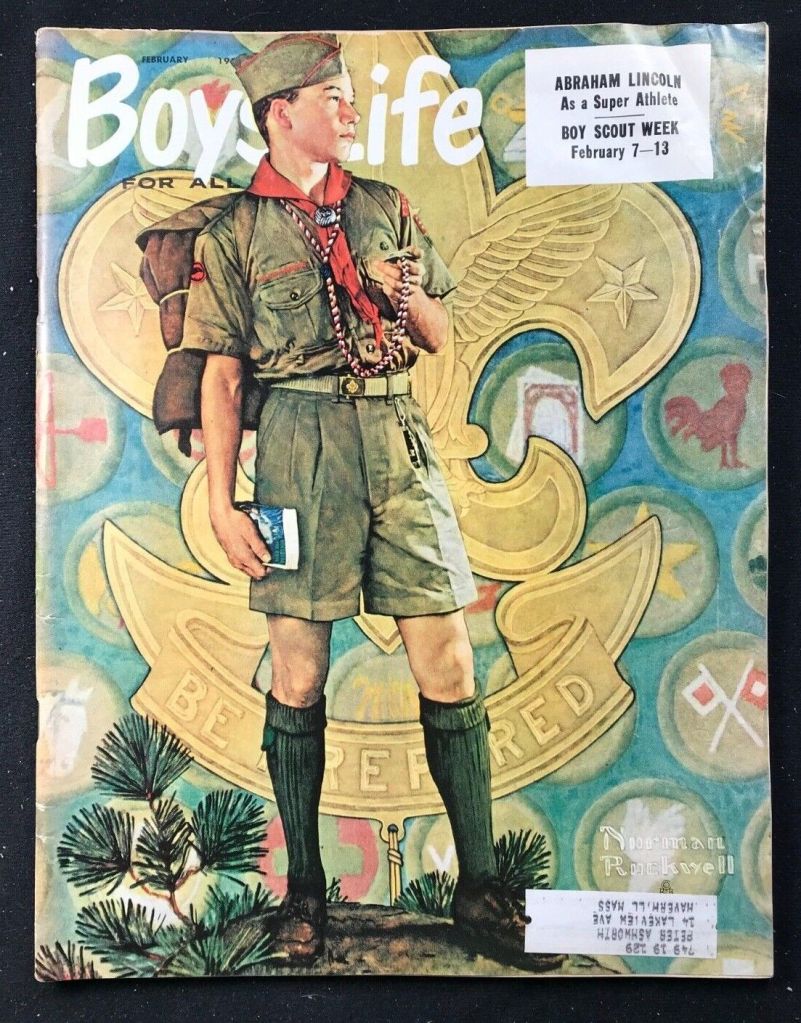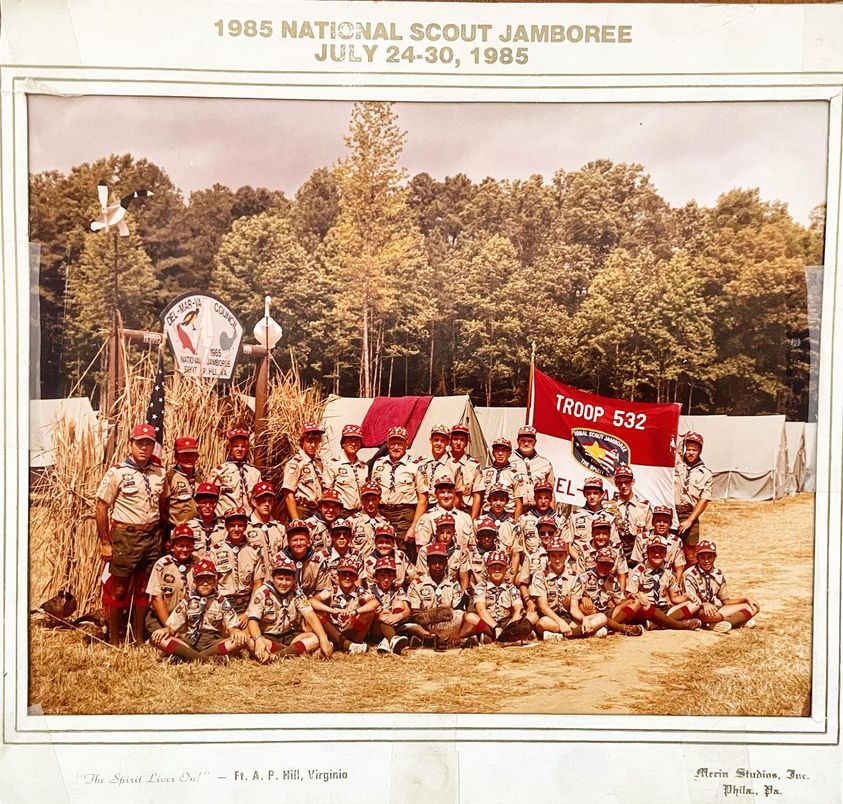
There are some things that I find it difficult to talk about. I never tell anyone how much I love my family, I never tell my friends how much they mean to me. I never discuss my heartfelt loyalty to my former high school or the University of Virginia. I never describe the importance of God in my life. The reason I never talk about these subjects is that they mean so much to me that I don’t feel like I could never properly express in words, the feelings I have inside of me.
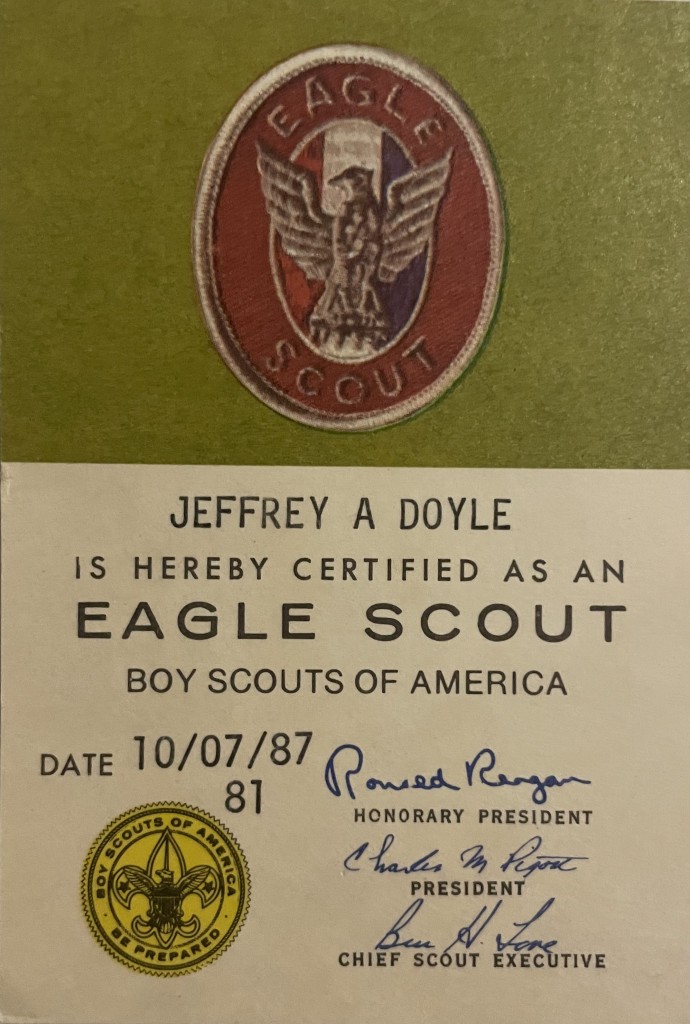
However, today I want to try to talk about an organization that means very much to me. This organization helped me grow into an independent, well-educated American. The best way to describe the Boy Scouts of America is as a way of life. Boy Scouts is very similar to relégion. In the same sense that once you have faith in a God, you will live his way, once you believe in the Boy Scouts, you will always be a Boy Scout. Christianity has the Bible, the Boy Scouts have the Handbook. This is my Handbook, which my father gave to me when I was 11 years old (visual aid). I have taken it on every Boy Scout meeting and outing I have ever been on. I have a Bible for studying God’s way, and a bible for studying God’s world. Furtnermore, Christianity has the 10 commandments, just as the Boy Scouts have the 12 points of the Scout Law. A Scout is trustworthy, loyal, helpful, friendly, courteous, kind, obediant, cheerful, thrifty, brave, clean, and reverent. The Scout Law is different from the do and don’t laws of the nation and the state, the Scout Law is a statement of facts. A Scout is. The Scout Handbook states, “The Scout Law is the foundation on which the whole Scouting movement is built. The ideals of the Scout Law are high, but it is only by striving toward high ideals and keeping faith with them that you can become the man you want to be.”

In addition to the Scout Law, Scouts are expected to live by the Scout Oath. “On my honor, I will do my best To do my duty, to God and my country and to obey the Scout Law. To help other people at all times; To keep myself physically strong, mentally awake, and morally straight. The Scout Oath states what is expected from you as a Scout. You pledge yourself to live up to your duties to God and your country, to other people, and to yourself. Both the Scout Oath and the Scout Law are repeated at attention, along with the Pledge of Allegiance, at the presentation of colors before each troop meeting. The Scout Oath and the Scout Law comprise the Spirit of Scouting, and only by living your life according to them will you become a true Scout.
If you asked any Boy Scout what his fondest memories of Scouting were, he would most likely remember the camping trips. Backpacking, canoeing, cooking, fishing, mountain climbing, swimming, and exploring all stir up memories of happiness. This happiness stems from living in nature, learning about nature, and playing in nature. Too many people today have never spent a weekend without a bed, heat or air conditioning, and a T.V. We are starting to lose touch with the world that contains every other living creature. By camping, Boy Scouts are reaquainted with their evolutionary ancestors, and are able to observe the amazing diversity of life that exists today.
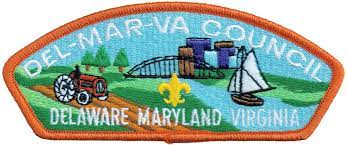
It is impossible to describe the amount of information a Boy Scout learns while camping. The information he absorbs will be valuable for the rest of his life. Literally, he learns how to survive in the wild. But in a wider perspective, he learns how to take care of himself and others. He becomes an independent thinker and a problem solver. Some of the problems Scouts face and solve on camping trips include: how to pitch a tent, how to start a fire without matches, how to purify drinking water, how to dig a latrine, how to sharpen a knife, how to chop with an ax, and how to tie knots. Scouts learn how to cook on coals or over an open fire, how to clean up charbroiled cookware, how to pack a backpack, how to plan a hike, and how to find their way with a compass, map, the sun or the stars. All this and more a Boy Scout learns while camping, and the best part about it is that he is doing it first hand, in the outdoors.
Yet there is more to nature than learning how to survive in it. In fact, in order to better survive in the outdoors, a Boy Scout needs to know how nature works. Through the help of leaders and the Handbook, Boy Scouts learn to appreciate the nature that surrounds them while camping. Boy Scouts are able to learn how a food chain works, learn how to identify flowers, trees, reptiles, mammals, birds, insects, and fish, and learn what types of environments these creatures inhabit. Scouts learn how to stop water and air pollution, how to save endangered animals, and how to conserve energy. By installing youth with this information about our Earth, we give them the opportunity to stop the destruction of our world. As someone once said, “The children of today, are the leaders of tomorrow.” Just ask Gerald Ford, Steven Spielberg, and John Glenn, all former Boy Scouts, that gave to this nation what Boy Scouts had given to them.
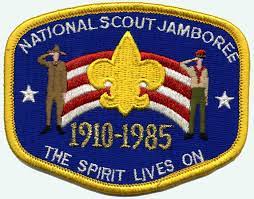
However, there are people less well known as these famous men that have given Just as much, by using their knowledge of first ald in emergency situations.
The Boy Scouts require that every Scout knows how to treat accidents quickly and effectively. Boy Scouts are instructed in CPR, shock treatment, life-guarding, and victim transport. They are taught how to care for burns, blisters, bites, heat exhaustion, frostbite, and broken bones. With this valuable information a Boy Scout is always ready to lend a hand in case of an emergency. Furthermore, helping others is a part of becoming an American citizen. Boy Scouts learn about democracy, America’s past leaders, America’s history, and are taught respect for America’s flag. On a smaller scale, the importance of a happy family, a close-knit community, and crime prevention are all emphasized.
These last few minutes I have tried to touch on some of the most significant subjects in Boy Scouts. But these important ideals are only the tip of the iceberg. For example, there are opportunities to learn about beekeeping, bookbinding, bugling, dentistry, fingerprinting, genealogy, handicapped awareness, oceanography, plumbing, space exploration, traffic safety and yes, even public speaking. If there was one thing you couldn’t do in Boy Scouts, it would be that you couldn’t do it all.
I’d like to conclude with an exerpt from the Boy Scout magazine Boys Life.
“A different sort is a Boy Scout, He’s as good on the inside as the out.
True to his God and his nation’s flag, A boy whose loyalties never sag.
An upright boy with a heart of gold, He can take the heat and he can stand the cold.
An adventurous sort of a rough, tough lad, He’d share with anyone, all that he had.
He’s cheerful and good, and he’s filled with fun, He always helps till the work is done.
There’s no better man in this great land, than a I Boy Scout w/ a helping hand.”
